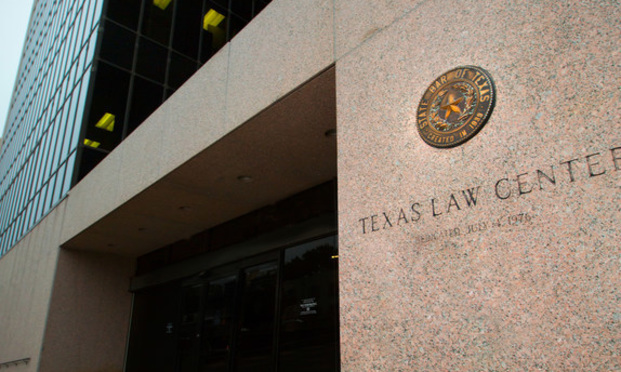CDC's Proposed Changes in Rules of Disciplinary Procedure Raise Concerns
Attorneys say proposed changes in the rules of disciplinary procedure would greatly expand the State Bar of Texas chief disciplinary counsel's subpoena authority without written standards or procedures for challenging or reviewing subpoenas.
February 12, 2018 at 03:24 PM
5 minute read

Proposed changes in the rules of disciplinary procedure would greatly expand the State Bar of Texas chief disciplinary counsel's subpoena authority without written standards or procedures for challenging or reviewing subpoenas, according to five attorneys who focus on legal ethics.
In a memorandum to the State Bar, attorneys Amon Burton, Charles “Chuck” Herring Jr., James McCormack, Jason Panzer and Gaines West detailed problems, including ones related to subpoenas, that they see in the CDC's proposed revisions to the Texas Rules of Disciplinary Procedure. The memorandum was among more than 100 comments that the bar submitted, along with the proposed rules changes, to the Texas Supreme Court on Feb. 9.
S.B. 302, the State Bar's sunset bill passed by the Legislature in 2017, required the CDC to propose new rules.
“There are some problems with these rules,” said Panzer, a partner in Herring & Panzer in Austin.
One of the key problems, Panzer said, is that the rules as proposed do not appear to meet the requirements of the Texas Government Code, he said.
Austin solo McCormack, who served as the State Bar's general counsel and CDC from 1991 to 1996, said the rules currently in effect provide for the issuance of subpoenas once just cause for a complaint has been found and disciplinary proceedings have begun.
“We're talking now about subpoenas at the front end of the process,” McCormack said. “It could be very broad.”
Texas Government Code Section 81.080(a) authorizes the CDC, with the approval of the presiding officer of the appropriate district grievance committee, to issue a subpoena that “relates directly to a specific allegation of attorney misconduct.” Under the proposed rules, the CDC — with the committee chair's approval — could issue a subpoena that “relates to the complaint” for the production of books, documents, banking records and other tangible items.
Another problem cited by the five attorneys in their memorandum is that the proposed rules do not provide a procedure to object to the time and place for compliance with a subpoena.
Panzer said that in theory, the CDC could issue a subpoena to require an attorney in Austin to produce files containing thousands of pages of documents the next day in Dallas. The proposed rules do not provide a procedure for objecting to the time and place required for responding to a subpoena, he said.
The only limit on the CDC's authority to issue a subpoena under the proposals is a “contest” between the CDC and the respondent about the materiality of the production sought, which would be determined by the chair of the grievance committee or investigatory panel.
“But the rules do not define the term 'materiality,'” the five attorneys noted in their memorandum.
According to the memorandum, that would leave the interpretation and application of the materiality standard up to the committee or panel chair, who might not be a lawyer.
The attorneys noted in their memorandum the importance of having a procedure to obtain a review of a chair's decision about the materiality of subpoenaed information or testimony and also suggested imposing a good-faith requirement — such as the one set out in Texas Rule of Civil Procedure 193.2(c) — for both subpoenas and objections.
Panzer said there also is a concern that the proposed rules relating to aggravation and mitigation would allow a lawyer's “uncooperative conduct” during proceedings to be taken into consideration in determining punishment.
“Based on the proposed rules, just objecting to a subpoena could be considered being uncooperative,” he said.
The memorandum also noted that the proposed rules would permit subpoenas to be served via email.
“Any experienced trial lawyer has experienced problems with email-serve, including spam and junk-email filters,” the memorandum stated.
Shared email addresses are common, and allowing email service can result in inadvertent violation of confidentiality restrictions applicable in disciplinary proceedings, the five lawyers contended.
The State Bar is not commenting on the concerns raised about the proposed rules. In response to a request to interview Linda Acevedo, the State Bar's CDC, the bar emailed the following statement:
“As a result of legislation passed during the sunset review process, changes to attorney disciplinary process are required. The primary objective of the legislative mandates is to promote earlier resolution of complaints and increased consistency in the process. The State Bar of Texas solicited comments on proposed revisions from Jan. 10 to Feb. 8. More than 100 comments were received, and the State Bar has forwarded those comments to the Texas Supreme Court for consideration. It would be premature for the CDC to comment before the Court completes its work, which is expected to conclude by March 1.”
This content has been archived. It is available through our partners, LexisNexis® and Bloomberg Law.
To view this content, please continue to their sites.
Not a Lexis Subscriber?
Subscribe Now
Not a Bloomberg Law Subscriber?
Subscribe Now
NOT FOR REPRINT
© 2025 ALM Global, LLC, All Rights Reserved. Request academic re-use from www.copyright.com. All other uses, submit a request to [email protected]. For more information visit Asset & Logo Licensing.
You Might Like
View All
Proposed Rule Will Prevent Clients From Strategically Disqualifying Lawyers
4 minute read
San Antonio Estate and Trust Litigator Voted President-Elect of State Bar
3 minute read
Trending Stories
Who Got The Work
Michael G. Bongiorno, Andrew Scott Dulberg and Elizabeth E. Driscoll from Wilmer Cutler Pickering Hale and Dorr have stepped in to represent Symbotic Inc., an A.I.-enabled technology platform that focuses on increasing supply chain efficiency, and other defendants in a pending shareholder derivative lawsuit. The case, filed Oct. 2 in Massachusetts District Court by the Brown Law Firm on behalf of Stephen Austen, accuses certain officers and directors of misleading investors in regard to Symbotic's potential for margin growth by failing to disclose that the company was not equipped to timely deploy its systems or manage expenses through project delays. The case, assigned to U.S. District Judge Nathaniel M. Gorton, is 1:24-cv-12522, Austen v. Cohen et al.
Who Got The Work
Edmund Polubinski and Marie Killmond of Davis Polk & Wardwell have entered appearances for data platform software development company MongoDB and other defendants in a pending shareholder derivative lawsuit. The action, filed Oct. 7 in New York Southern District Court by the Brown Law Firm, accuses the company's directors and/or officers of falsely expressing confidence in the company’s restructuring of its sales incentive plan and downplaying the severity of decreases in its upfront commitments. The case is 1:24-cv-07594, Roy v. Ittycheria et al.
Who Got The Work
Amy O. Bruchs and Kurt F. Ellison of Michael Best & Friedrich have entered appearances for Epic Systems Corp. in a pending employment discrimination lawsuit. The suit was filed Sept. 7 in Wisconsin Western District Court by Levine Eisberner LLC and Siri & Glimstad on behalf of a project manager who claims that he was wrongfully terminated after applying for a religious exemption to the defendant's COVID-19 vaccine mandate. The case, assigned to U.S. Magistrate Judge Anita Marie Boor, is 3:24-cv-00630, Secker, Nathan v. Epic Systems Corporation.
Who Got The Work
David X. Sullivan, Thomas J. Finn and Gregory A. Hall from McCarter & English have entered appearances for Sunrun Installation Services in a pending civil rights lawsuit. The complaint was filed Sept. 4 in Connecticut District Court by attorney Robert M. Berke on behalf of former employee George Edward Steins, who was arrested and charged with employing an unregistered home improvement salesperson. The complaint alleges that had Sunrun informed the Connecticut Department of Consumer Protection that the plaintiff's employment had ended in 2017 and that he no longer held Sunrun's home improvement contractor license, he would not have been hit with charges, which were dismissed in May 2024. The case, assigned to U.S. District Judge Jeffrey A. Meyer, is 3:24-cv-01423, Steins v. Sunrun, Inc. et al.
Who Got The Work
Greenberg Traurig shareholder Joshua L. Raskin has entered an appearance for boohoo.com UK Ltd. in a pending patent infringement lawsuit. The suit, filed Sept. 3 in Texas Eastern District Court by Rozier Hardt McDonough on behalf of Alto Dynamics, asserts five patents related to an online shopping platform. The case, assigned to U.S. District Judge Rodney Gilstrap, is 2:24-cv-00719, Alto Dynamics, LLC v. boohoo.com UK Limited.
Featured Firms
Law Offices of Gary Martin Hays & Associates, P.C.
(470) 294-1674
Law Offices of Mark E. Salomone
(857) 444-6468
Smith & Hassler
(713) 739-1250







